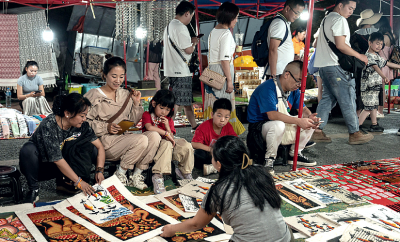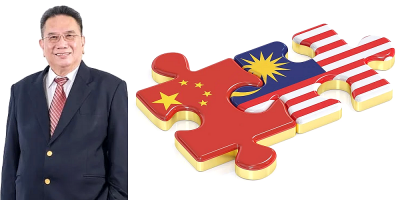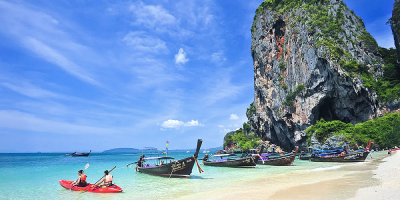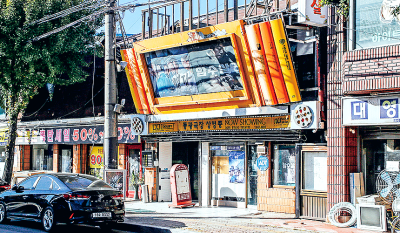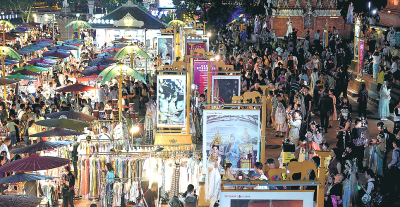
Tourism has long been an essential industry for Malaysia. Its contribution to the national economy has grown significantly, and it is now the third most significant contributor to the GDP after manufacturing and commodities.
In 2019, the tourism industry recorded a contribution of 15.9 per cent (RM240.2 billion) to Malaysia’s gross domestic product (GDP), as compared to 15.2 per cent (RM220.4 billion) in 2018.
Besides, the opportunities created by the tourism industry are astounding. A total of 3.6 million people were employed by the tourism sector, representing 23.6 % of the country’s total employment in 2019.
The lucrative returns recorded by the tourism industry may have been one reason Malaysia launched its Visit Malaysia 2020 program which aimed to welcome 30 million tourists to Malaysia and register RM100 billion in tourist receipts.
Unfortunately, the COVID-19 pandemic brought an unprecedented external shock to the tourism industry, and the Visit Malaysia 2020 program was forced to be cancelled.
Today, interstate and inter-district travel within Malaysia are severely restricted, and the country’s international borders have been closed to all for more than a year.
The level of economic distress caused by the pandemic has been severe. The latest report published by the Department of Statistics Malaysia (DOSM) registered just 4,332,722 international tourist arrivals in 2020, a massive reduction of 83.4% compared to the previous year. The figures are expected to dip further in 2021 as Malaysia’s borders have remained closed to international travellers.
Additionally, in a recent study conducted by Universiti Malaya, the level of tourist expenditures dropped from RM86.14 million in 2019 to RM12.69 million in 2020, indicating a reduction of 85.3%.
Also in 2020, the travel sub-sector recorded a deficit of RM7.8 billion for the first time in thirty years. Revenue from the accommodation sub-sector registered negative growth of 53.3%, and the decrease in air passengers led to the increase of RM1.6 billion deficit in the transport sub-sector in 2020.
Although the government has introduced multiple incentive programs such as Prihatin, Prihatin SMEs, Penjana Tourism Financing scheme, PEMERKASA stimulus package, a one-off special assistance grant of RM3,000 for 5,000 tour agencies registered with the Ministry of Tourism, Arts and Culture (MOTAC), Wage Subsidy Program 3.0 and an extension of the exemption for tourism tax and service tax for hotel accommodation until Dec 31, 2021, and tax relief of up to RM1,000 for Individuals who purchase tourism packages from tour agents registered with MOTAC. However, these measures have not been sufficient to keep the tourism industry afloat.
According to data released by the Companies Commission of Malaysia and the Malaysian Association of Hotels (MAH), the hotel industry recorded a loss of over RM6.53 billion in 2020 and suffered estimated losses of RM300 million every two weeks during the Movement Control Order (MCO).
As a result, the hotel industry’s loss of revenue in 2021 has already added up to more than RM5 billion.
In addition, as of end of March 2021, at least 2,041 hotel employees had been laid off while 9,773 were on unpaid leave and another 5,054 have taken pay cuts, while around 100 of three-, four- and five-star hotels have closed for business.
It is expected to worsen with the current MCO 3.0 implemented since the May 10, 2021 and with Phase 1 of recovery and beyond given the expected slow reopening of the various phases of 2 – 3 of inter-district and interstate travel and other related economic activities.
The current incentive programs are unlikely to prevent a significant collapse of Malaysia’s tourism industry due to the persistent high number of COVID-19 cases, and the extended travel restrictions due to lockdown.
The effects of the pandemic have manifested into the tourism industry’s most severe crisis which has offered some important lessons for both policymakers and industry players.
Although the industry previously experienced the SARS pandemic, its resilience towards the current pandemic has been weak.
While the industry is counting on vaccines for recovery, policymakers should develop a tourism weathered roadmap to restore traveller’s confidence, promote domestic tourism and support the safe return of international tourism.
The government and industry players should try to outline turnaround plans and practical factors in conserving a more resilient and sustainable tourism in addition to the current vaccination program.
In our recent survey on the travel industry carried out as part of our research grant, 91.2% of the respondents agreed that their business operations had been affected. In contrast, all of the respondents had suffered revenue and profit contractions due to the COVID-19 pandemic.
It worries us that 86.8% of the respondents did not have sufficient cash flow to maintain their operations; thus, 25.8% of the respondents have laid off more than 41% of their pre-COVID-19 workforce.
Lastly, 44.1% of the respondents indicated that their operations would be permanently shut down within six months if the existing conditions persist with interstate travel being banned.
The future of the tourism industry and hoteliers remains bleak where most are at zero occupancy due to the travel restrictions while there were only 20% who solely relied on COVID-19 quarantine guests.
If further travel restrictions extensions, both locally and globally are to be expected, the hotel sector and tourism industry will continue to suffer with deeper economic impact on businesses, individuals and the country.
There must be pragmatic exit strategy for the upcoming phases of recovery to enable economic recovery plan for the domestic tourism sector as well as other sectors.
Note: The survey statistics are from our grant under UM CSRG010-2020SS.
(Goh Lim Thye is Senior Lecturer at the Faculty of Economics and Administration, Universiti Malaya; Beh Loo See is Professor at the Faculty of Economics and Administration, Universiti Malaya; and Lin Woon Leong is Senior Lecturer at the Faculty of Business and Law, Taylor’s University.)
ADVERTISEMENT
ADVERTISEMENT







